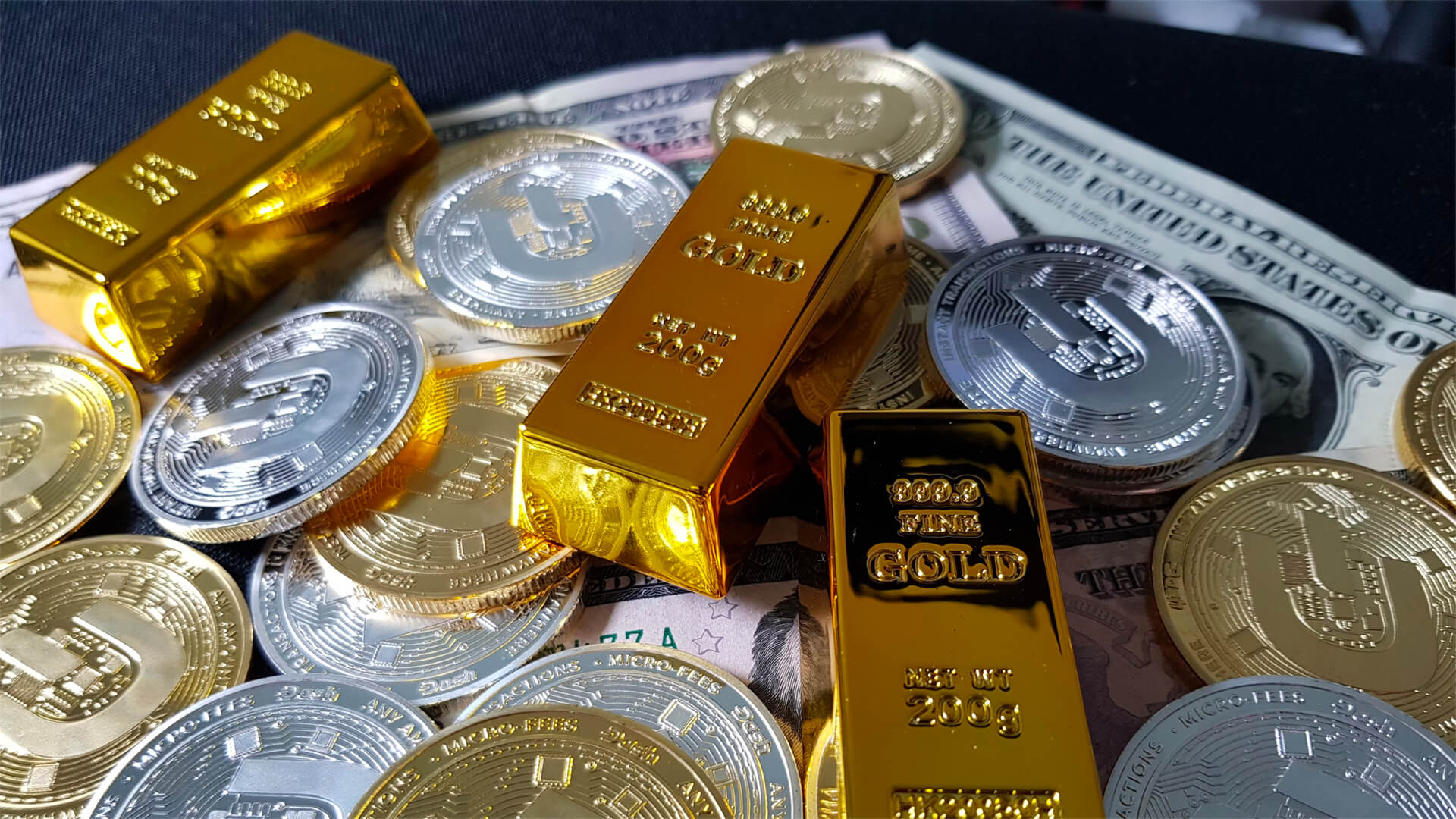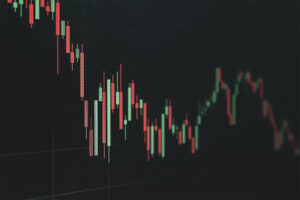Apparently, the wind on the saddle between Mt James and Mt. Bancroft is pretty bad, so apologies for the audio today.
After today’s video, all the leprechauns out there might be mad because we’re talking about GOLD. And unfortunately, there’s no treasure at the end of the rainbow this time…
At the start of the Ukraine War, many of the world’s advanced central banks placed sanctions and embargos on Russian financial assets. As Putin tries to repatriate gold reserves from these hubs worldwide, what does this mean for the leprechauns who think we should switch to an asset-backed currency?
If you know your history, the answer is obvious. Every time we’ve used an asset-backed currency, it’s resulted in collapse. There’s just no asset, especially not gold, that can keep up with economic growth and expansion around the world. And when the currency becomes a brake on economic activity, you end up with a sharp crack in the system; which leads to depression and often state collapse.
You can argue that fiat currencies aren’t perfect, but don’t say an asset-backed currency would be better. This isn’t financial advice, but if gold continues to be pulled from these hubs, its use case will only get smaller and smaller.
Prefer to read the transcript of the video? Click here
Here at Zeihan On Geopolitics we select a single charity to sponsor. We have two criteria:
First, we look across the world and use our skill sets to identify where the needs are most acute. Second, we look for an institution with preexisting networks for both materials gathering and aid distribution. That way we know every cent of our donation is not simply going directly to where help is needed most, but our donations serve as a force multiplier for a system already in existence. Then we give what we can.
Today, our chosen charity is a group called Medshare, which provides emergency medical services to communities in need, with a very heavy emphasis on locations facing acute crises. Medshare operates right in the thick of it. Until future notice, every cent we earn from every book we sell in every format through every retailer is going to Medshare’s Ukraine fund.
And then there’s you.
Our newsletters and videologues are not only free, they will always be free. We also will never share your contact information with anyone. All we ask is that if you find one of our releases in any way useful, that you make a donation to Medshare. Over one third of Ukraine’s pre-war population has either been forced from their homes, kidnapped and shipped to Russia, or is trying to survive in occupied lands. This is our way to help who we can. Please, join us.
CLICK HERE TO SUPPORT MEDSHARE’S UKRAINE FUND
CLICK HERE TO SUPPORT MEDSHARE’S EFFORTS GLOBALLY
TRANSCIPT
Hey everybody. Peter Zeihan here. Coming to you from the saddle between Mount James and Mount Bancroft. That’s Lake Oman just below me. I’m about 12,500 feet here. Today, we’re going to talk about other high minded issues such as golddd.
Now, one of the things that we saw last year with the beginning of the Ukraine war is that most of the world’s more advanced central banks started putting massive sanctions on. That included the embargo of Russian financial assets held abroad, whether it was foreign currency or gold reserves themselves. Now, the way the currency markets normally work is there are a number of nodes, places like Tokyo and London and New York, where trillions of dollars of currency are exchanged every single day. And by locating these things in these hubs, everything becomes a lot more efficient, especially when you’re talking about gold. It’s traditionally traded electronically, and the stuff is just kind of held in a big vault. There are pluses and minuses to that. The pluses, it means it can go anywhere at any time and interact with any one kind of like digital currency in general, or your ability to move money around via your bank account without actually going in and getting physical cash to hand someone. The downside, of course, is that, well, it’s in New York or London or Tokyo, and if New York or London or Tokyo decide that you’re a bad, bad person, then all of a sudden they can say, You know what? This isn’t moving anywhere. Not today, not ever. We’re just going to close the vault and your stuff is stuck. Because of that, a lot of central banks in the world, not among the countries that are doing the sanctions, but everybody else have been trying to physically repatriate their gold from those hubs back home. Now, there’s nothing to stop them from doing this. The question is whether or not there’s any utility in it, because if their gold is physically at home, the digital aspect of duty and transfer is much weaker unless you can find another hub. And at the moment, the only theoretical, and emphasis on the word theoretical, large scale place for that would maybe be the United Arab Emirates. The UAE just doesn’t have the experience right now or the credibility to be that sort of hub. And remember, any sort of secondary hub is not going to be using gold from the United States or Japan, Canada or Italy or anyone in the European Union, any of the First World. So you’re talking about something like 80% of global currency exchange, all of a sudden there’s not going to be using this new hub at all. Makes it very hard to get it going in the first place. Anyway, for other people, non-central banks, people who are using gold or other currencies as a matter of course, I wouldn’t get too excited about the idea of gold coming back as countries are looking for options that don’t use the hubs and don’t use the U.S. dollar and don’t use the euro or the yen or the pound. You’ve got to think about why we have a currency system the way we do. Now, back in the bad old days before 1970, we did use gold back asset backed currencies. And every time, every single time we ever had one, it ended in collapse. Because one of the things that you generate whenever you have trade, whenever you have economic activity, is you have to have some means of exchanging it that preferably is not barter. And usually, historically speaking, we have used asset backed currencies for that. But as growth picks up, as economic activity picks up, you need more and more and more and more and more of the currency until eventually you gobble up everything that is available. And when that happens, the currency itself starts to become a source of massive inflation, independent of the normal issues of supply and demand and logistics of labor and capital. When the currency itself becomes a brake on economic activity. You get a sharp crack in the system, usually a depression and oftentimes state collapse. This has happened with every single asset backed currency throughout human history. Now you can make the argument that the fiat age, where countries like the United States government just say, you know, this is what the dollar is worth and we’ll maintain it. And you can see that that is a flawed system that is fine, but it is by far better than all the other systems because the U.S. Federal Reserve, our monetary authority, has the ability to regulate the supply of the currency on a second by second basis. So if there’s strong economic growth, if from the 1990s until now, the U.S. economy expands by a factor of three, than there’s no problem for the Federal Reserve to triple the volume of the currency that is available for use. You can’t do that with gold. There’s another problem, of course, the daily currency daily global currency exchange is about four or 5 trillion U.S. equivalent. The U.S. economy is now $20 trillion. Global merchandise trade is over $25 trillion. All of the gold that the human race has mined in total, in the last 6000 years of history, it’s only about 10 trillion and only a few single digit of percentages of that is available for use in the day to day. Because most of the world’s gold is in things like wedding bands and museum exhibits and semiconductors. So not only theoretically is there not enough there, even if it was all pooled somehow, if we did go back to some sort of gold based system, you would have a crushing impact on economic growth because you would have hyperinflation triggered by the currency itself. And this is one of those things that most of those people who think that we should move on to something beyond the dollar tend to dismiss or think that we need to go back to a asset backed system, tend to miss. The human race in its current position with over 8 billion people at a combined global GDP pushing $100 trillion. Cannot function without fiat currency. Oh yeah, as I was climbing I thought of one more thing. And that’s Icebound Lake behind me. I know a lot of you are going to ask, or you’re going to translate it into financial advice anyway…I don’t give financial advice. Let me start by saying that. But number two, I’m not necessarily saying that you shouldn’t invest in gold. I mean, you do it for your own reasons. I would just point out that with many of the world’s secondary central banks physically repatriating their gold, it is being removed from currency exchanges, becoming a non-factor. No movement up, no movement down. They are basically repudiating the open exchange system that underpins most financially liquid markets. Now, does that mean that gold has no use? Of course not. In addition to its industrial uses and its jewelry uses, it can still be used as a method of exchange. But by removing gold from the digital system, it means you have to do so physically. So one of the ways that the Russians, for example, are getting around the sanctions regime is to physically load gold up into a plane and fly it to a country that they’re buying stuff from. That is neither bullish or bearish for gold because it never sees the light of day. It never gets exchanged in a traditional sense that can push the market up or down. So does that make the case for gold more or less viable? I’d say neither. It just makes it smaller.
Alright. I’m done for real. Bye.








